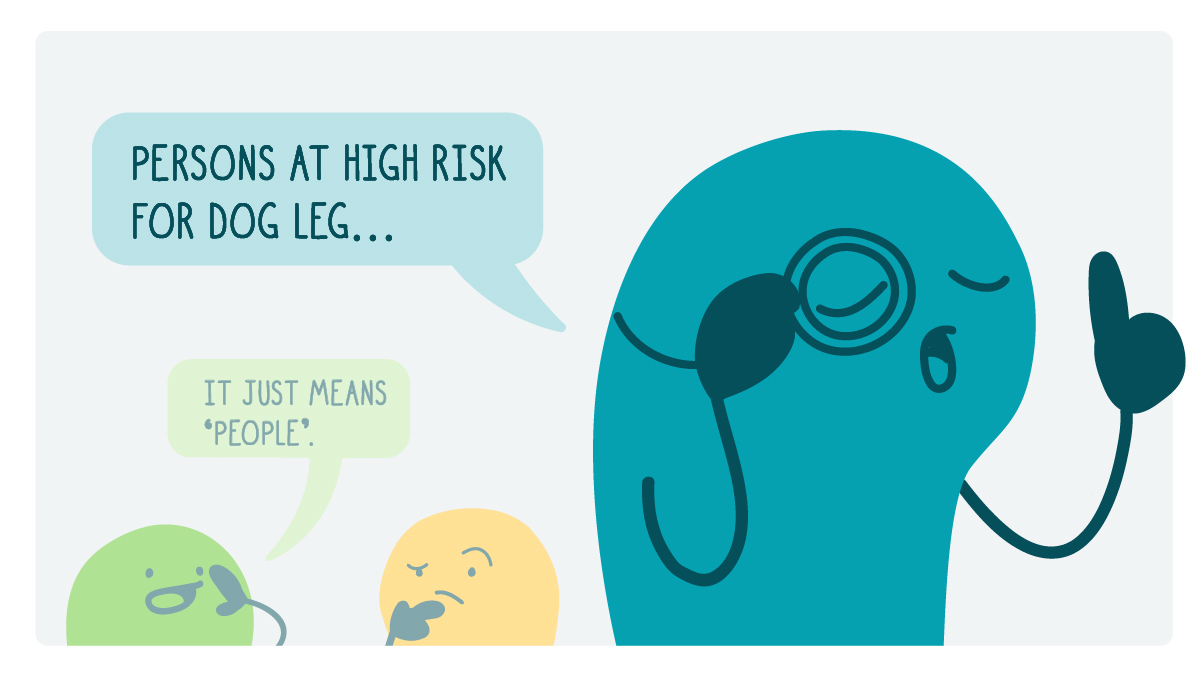
Here at We ❤️ Health Literacy Headquarters, we’re all about providing need-to-know info only. So today, allow us to bring you a short and sweet one.
Let’s say you’re browsing health stats, perusing a health insurance booklet, or even (gasp!) checking out a health education material — and you stumble on the word “persons.” If you’re anything like us, dear readers, that single word could stop you in your tracks. It’s distracting because it sounds formal and antiquated — and just plain awkward.
Why on earth would you use “persons” when you can use “people”? Well, we have a simple answer. No reason at all!
While it’s true that historically, there was a distinction between the 2 words, modern style guides have agreed that at this point, it’s a moot point. Some persons people might still argue that “persons” has a rightful place in legalese (we’d still vote no), and there are some established phrases that sort of roll off the tongue (think: “persons of interest”). But we see no need to keep that word around — especially not in consumer-facing health materials, when a conversational tone can help our audiences relate to and understand critical information.
This is the point in the post where we usually give you a bunch of examples to drive the idea home, but it wasn’t all that inspiring — write “people with diabetes” instead of “persons with diabetes” and so on. So we’ll leave it here: when writing about people in your health-related materials, take “persons” out of your vocabulary. Full stop.
The bottom line: Avoid “persons” in your health materials (and in general!) — “people” is a much better choice.
Browse recent posts